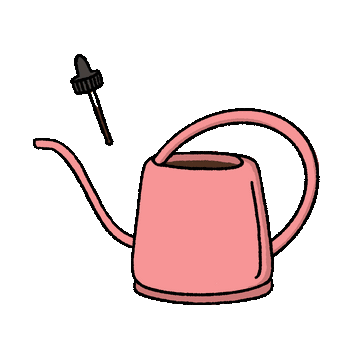About this time every year we start getting all the 'Winter Plant Care' blogs come through. And with them, the favourite tip: Stop fertilising.
But truth is, your plants don't care what season it is. They care about light and temperature, sure, and they rely on you to consider those factors in your plant care routine. Your plants will actually benefit from simply adjusting your fertilising habits rather than cutting them out all together.
The Misconception
The theory is sound - plants need warmth and light to grow. In Winter there is less of both, therefore they aren't growing, and you should cut out fertilising. And while this does make sense, its not always best practice. It is easy advice to give out, because there is no room for error. Cutting out fertilising your plants over Winter isn't going to kill them, and most people are happy just to roll with this.
In the end, incorrect fertiliser application causes more plant problems than using none at all - no matter what time of year it is.
But there are so many variables that aren't even considered here. Our homes aren't all the same. Some are brighter, or warmer, or both! Some of us use grow lights and heat mats and humidifiers, others might not.
Winter does not automatically mean your plants are going to shut down and hit the hay. So being aware of your plant's growing conditions is key.
If you're keen on giving your plant fam the best, instead of cutting out fertilising, it's better to tweak the nutrient delivery slightly.
The Options
Now that we've covered the misconception and you're all on board, let's run through a few different options for Winter.
1. Stop fertilising. Yes - its still an option. We're keeping this here as its not going to horribly detrimental if you were to hold off...but fingers crossed this blog convinces you to go for option 2 or 3 instead.
2. Switch up your fertilisers. Not all fertilisers are a year round thing. And chances are if you're using the same fertiliser at the same rate all year round, your plants are either getting too many nutrients over Winter, or not enough over Spring/Summer. We've discussed the differences between fertiliser types before here, but as a quick recap:
High NPK, liquid fertilisers are fast acting, more precise and the most accessible for plants. These should be used when your plants are doing the bulk of their growing (usually over Spring and Summer).
Low NPK, organic fertilisers are ideal for the times when plant growth has slowed. They have much lower levels of nitrogen, phosphorus and potassium so the risk of over fertilising is much much smaller. They often take longer to break down and be absorbed by the plant, so are ideal in the traditional 'grow-slow' seasons like Winter.
As such, we encourage a combination the two, switching over as per the season. This ensures your plants are still getting the nutrients they need, at the best possible levels year round. Alternatively, you can keep using synthetic fertilisers year round, but you need to adjust the dilution rate depending on the plants growth. 1/4 strength over winter, for example.
3. Do nothing and keep fertilising. If you've got a good handle on your plant's growing conditions and are able to keep things pretty consistent year-round, you won't need to make to many adjustments at all. If you're not sure how 'active' your plants growth is, err on the side of caution and move to an organic fertiliser over Winter.
Keep in mind, that while organic fertilisers are promoted as safe to use all year round, any fertiliser can be used to excess. Always follow the directions on the label and when in doubt, hold off.




Leave a comment